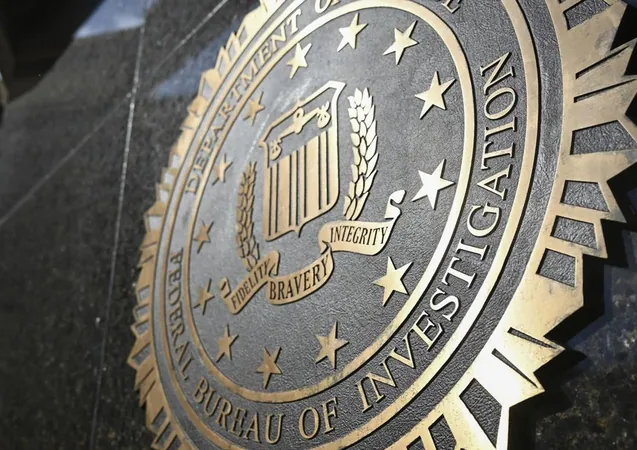
FBI Urges Smartphone Users to Switch Messaging Apps—But There's a Big Catch!
2024-12-08
Author: Ying
FBI Issues Urgent Warning
In a shocking announcement, the FBI has issued a warning to both iPhone and Android users to stop using regular texting and switch to encrypted messaging platforms such as WhatsApp, Signal, and Facebook Messenger. The move, however, comes with an alarming catch: even these popular platforms may not provide the level of security users think they do.
Recent Cyberattacks Raise Concerns
Recent cyberattacks linked to a group known as Salt Typhoon—purportedly affiliated with the Chinese Ministry of State Security—have compromised multiple U.S. telecom networks. While Chinese officials deny any involvement and accuse the U.S. of a smear campaign, the reality is stark: users’ metadata and content are at risk.
Encryption Is Not Enough
The FBI has emphasized that merely utilizing encrypted messaging is not enough. Among the recommended practices, they advise that users opt for smartphones with timely software updates and employ 'responsibly managed encryption' along with multifactor authentication for online accounts. This new framing from the FBI indicates that the encryption many rely on may not be robust enough under their standards.
The Dilemma of 'Responsibly Managed Encryption'
“Responsibly managed encryption” implies that while encryption should protect citizens' privacy, companies must also have the technical means to decrypt messages if required by a lawful court order. As it stands, current platforms do not meet this condition, thus preventing law enforcement from obtaining vital digital evidence. FBI Director Christopher Wray articulated the dilemma, stating that the surge in end-to-end encryption has left vital communications concealed from law enforcement during investigations involving terrorists and other criminals.
Privacy vs. Public Safety
This ongoing tug-of-war has amplified concerns about user privacy versus the need for public safety. Tech giants like Apple and Google position themselves as staunch guardians of user privacy, which complicates the FBI's requests. While these companies maintain that only users can access their encrypted content, this creates a scenario where law enforcement may be powerless to act, even with a valid warrant.
The Future of Communication Technology
As the debate around privacy and security intensifies in the U.S., we may see escalating pressure on tech firms to rethink their encryption policies. Currently, the FBI's insistence that companies should implement more open systems contradicts user desires for privacy. The conversation surrounding 'responsible encryption' is far from resolved; if anything, it's just heating up as more reports of cyber threats surface.
Conclusion: A Delicate Balance
With nearly every user now leaning towards encrypted messaging, end-to-end encryption has become a standard expectation. Yet amidst this backdrop of digital security, the FBI calls for a reevaluation of how these systems are governed and accessed. The future of communication technology hangs in a delicate balance between securing personal data and ensuring community safety. As we approach 2025, the stakes have never been higher. Users must now grapple with whether they can trust tech companies to protect their communications or whether they should demand a level of access that might compromise their privacy.
Stay tuned as this explosive debate continues to unfold, illuminating the ongoing struggles between technological advancement, privacy rights, and national security!

 Brasil (PT)
Brasil (PT)
 Canada (EN)
Canada (EN)
 Chile (ES)
Chile (ES)
 Česko (CS)
Česko (CS)
 대한민국 (KO)
대한민국 (KO)
 España (ES)
España (ES)
 France (FR)
France (FR)
 Hong Kong (EN)
Hong Kong (EN)
 Italia (IT)
Italia (IT)
 日本 (JA)
日本 (JA)
 Magyarország (HU)
Magyarország (HU)
 Norge (NO)
Norge (NO)
 Polska (PL)
Polska (PL)
 Schweiz (DE)
Schweiz (DE)
 Singapore (EN)
Singapore (EN)
 Sverige (SV)
Sverige (SV)
 Suomi (FI)
Suomi (FI)
 Türkiye (TR)
Türkiye (TR)
 الإمارات العربية المتحدة (AR)
الإمارات العربية المتحدة (AR)